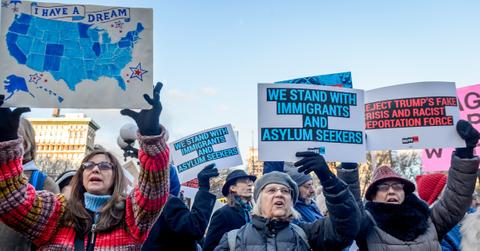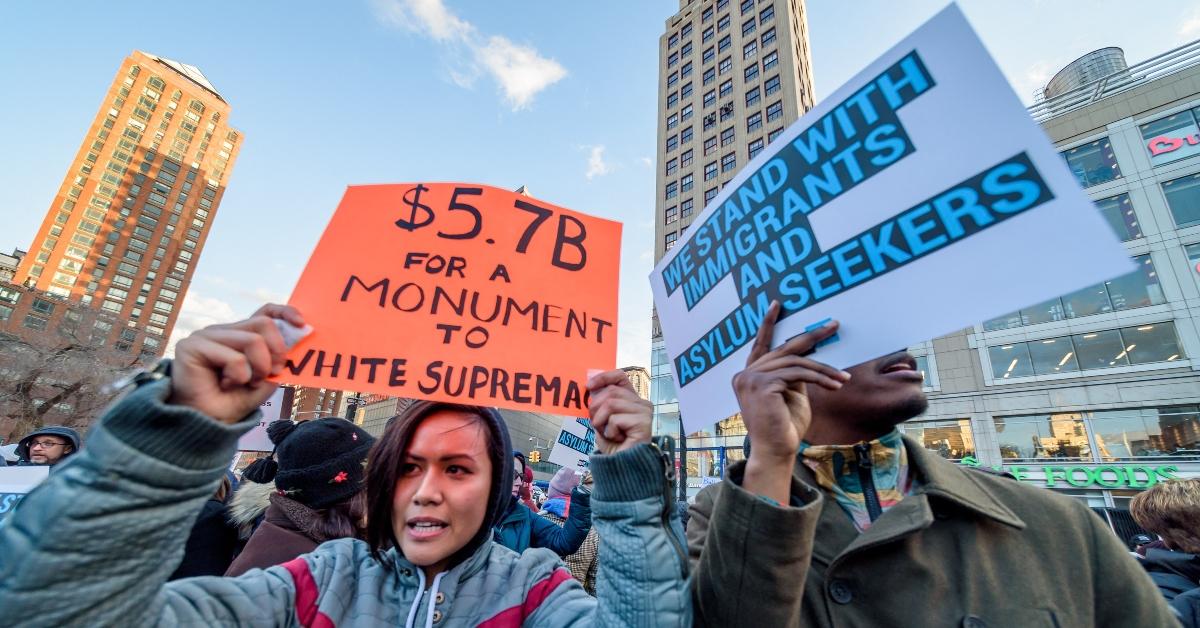What Does "Non-Sanctuary City" Mean? The Answer Has Broad Implications
Sanctuary cities intend to protect undocumented immigrants while non-sanctuary cities purport to protect citizens.
Published Jan. 23 2025, 2:27 p.m. ET
When President Donald Trump returned to the White House in 2025 to start his second term in office, he brought with him a number of high-profile agenda items. Among these were defining gender at the federal level, addressing energy policy, changing the United States' role in international treaties and organizations, and plans for immigration policies.
In addressing immigration policies, Trump unveiled his plan to crack down on illegal immigration and begin mass deportations of undocumented immigrants.
Yet there are cities in the United States where strong federal actions against immigrants are nearly impossible to enforce. These cities are known as "sanctuary cities."
In response to Trump's flurry of executive orders, Huntington Beach, Calif., declared itself a "non-sanctuary city."
What exactly is a "non-sanctuary city" and how does it align with federal policy? Here's the explanation.
What does it mean to be a "non-sanctuary city"? It's a big deal.
Sanctuary cities are cities where the local government has declared that they will not comply with strong-arm federal policies regarding immigrants. There's no official definition, but generally, these cities shield undocumented immigrants by using a "don’t ask, don’t tell” approach to immigration and refusing to comply with directives from the federal government requiring them to deport or crack down on immigrants in their city limits.
And it can go further. California, for instance, considers itself a "sanctuary state."
A "non-sanctuary city," then, is just a city that pledges to comply with federal actions toward undocumented immigrants. In the case of Huntington Beach, they were declaring their intent to honor Trump's executive actions and comply with deportation crack-downs.
When declaring the city a non-sanctuary city, Huntington Beach officials explained per ABC7, "We need every law enforcement effort, whenever called upon, whether it be fighting terrorists, whether it be fighting purse snatchers, or whatever it is, we have to have every law enforcement tool to best serve our citizens."
Yet for many people, the debate over sanctuary cities is, at its core, about protecting humans from laws they perceive as unjust, while opponents of sanctuary cities believe that they create an opportunity for crime to flourish.
People throw the term "sanctuary city" around often, but what does it all mean?
Is this a good thing or a bad thing?
Whether or not you consider it a good thing to be a "non-sanctuary city" depends entirely on your point of view and perspective.
For example, for those who feel that following the President's directives is paramount, this would be a good thing.
There is a not-insignificant number of people in California, for instance, who vote Republican and therefore may not agree with the concept of sanctuary cities and would prefer to increase immigrant regulation and deportations.
For them, declaring a city a "non-sanctuary city" would be in accordance with federal directives and would be positive. Yet sanctuary cities do purport to perform a number of services that many consider vital for human rights, such as protecting refugees and immigrants who have fled upheaval in their home countries.
According to Britannica, perceived pros of sanctuary cities include: encouraging better relationships between law enforcement and undocumented immigrants, upholding the Constitution's 10th Amendment, and protecting undocumented immigrants from unjust federal laws.
Perceived cons include: harboring criminals, defying federal laws to which state and city governments are supposed to be bound, and preventing state and local police departments from enforcing laws they are sworn to uphold.
However, studies have shown that some of the cons people assume apply to sanctuary cities are actually the result of misinformation. For instance, Los Angeles is the oldest sanctuary city in the United States. Contrary to what people assume that means about crime rates, Los Angeles has a lower murder rate than non-sanctuary cities of comparable size.
In 2013, Los Angeles recorded 5.75 murders per 100,000 residents. In 2013, Dallas reported 11.39 per 100,000 and Indianapolis reported 15.17.
Yet U.S. Code, Title 8, § 1373, reads, "a Federal, State, or local government entity or official may not prohibit, or in any way restrict, any government entity or official from sending to, or receiving from, the Immigration and Naturalization Service information regarding the citizenship or immigration status, lawful or unlawful, of any individual."
Sanctuary cities could be seen as a violation of that law.
So whether you believe in the importance of sanctuary cities depends in part on whether you believe the law is the most important thing, or whether the most important thing is protecting people from laws that have the potential to be unjust and violate human rights and/or dignity.
There are no easy answers, but the debate over sanctuary cities/non-sanctuary cities is one that seems likely to continue in the United States for a long time.

